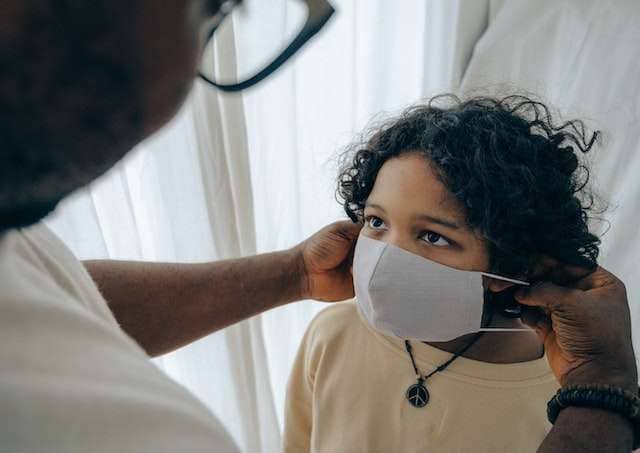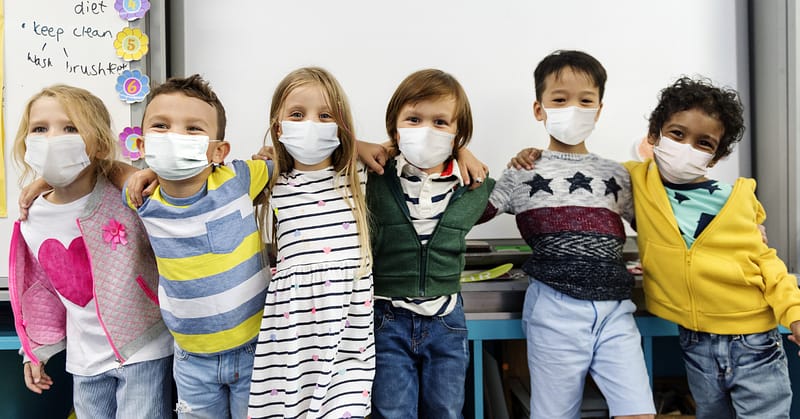As the coronavirus pandemic has impacted the world at large and nearly every part of our everyday lives, imagine not fully understanding what the past year has entailed- say if you were a child or young adult. Navigating COVID-19’s direct impact on children is still an evolving process, however it’s important to focus on the factors we can control and as a parent ensure our children’s emotional, mental, and physical needs are being met as best as possible. Continue reading to learn about the impacts and different ways to help your child cope through this unprecedented time.
Understanding COVID-19’s Impact on Children
 COVID-19’s impact on children can depend on their age, psychological background, the routine changes they experienced, and how their parents reacted to the pandemic. It’s no secret that parents are often thought of as role models by their children, therefore a parent’s response to the pandemic may have determined the impact experienced by the child. For example, if the parent was visibly stressed a child may react in the same way. If the parent’s routine stayed relatively the same, such as they still had to go to work everyday, the child may have been able to keep that same routine and mindset. Parents who may have been laid off or had difficulty adjusting to working from home stress levels could have influenced what the child was feeling throughout the pandemic as well. However, children with emotional history such as anxiety, OCD, or depression may have been impacted to a higher degree having never dealt with a similar situation before.
COVID-19’s impact on children can depend on their age, psychological background, the routine changes they experienced, and how their parents reacted to the pandemic. It’s no secret that parents are often thought of as role models by their children, therefore a parent’s response to the pandemic may have determined the impact experienced by the child. For example, if the parent was visibly stressed a child may react in the same way. If the parent’s routine stayed relatively the same, such as they still had to go to work everyday, the child may have been able to keep that same routine and mindset. Parents who may have been laid off or had difficulty adjusting to working from home stress levels could have influenced what the child was feeling throughout the pandemic as well. However, children with emotional history such as anxiety, OCD, or depression may have been impacted to a higher degree having never dealt with a similar situation before.
Children who were able to maintain social connections safely (video calls, social media, etc.) are thought to have been less impacted than those who did not. Social interactions are known to boost your mental health in ways such as increased feelings of purpose, happiness, self-worth, and even confidence. On the other hand, children who live with anxiety for instance may have found relief throughout the pandemic not having to interact in social situations which normally overwhelm or cause them stress.
How to Help Your Child Cope
Helping your child through COVID-19’s impact and how it may have shaken up their daily routine may sound daunting, but there are a few overarching tips to keep in mind:
- Remember that everything is temporary
- Be gentle toward one another
- Allow your child (and yourself!) to let in all of the feelings that they’re experiencing and understand that some days may be tougher than others
- Seek out a therapist to help navigate the conversation
- Enjoy your time together, as many families have been spending more time together than they previously did, connect with one another and have fun!
When it comes to ways you can help soothe your child, try:
- Breath work
- Hugging
- Meditation
- Mindfulness
- Grounding activities, meaning anything that helps you to focus on one or more of your senses, e.g. noticing your feet on the floor, taking a warm shower or bath, noticing the breeze or sun on your skin, and more.
When it comes to keep your child in a routine or staying productive, try:
- Setting up a schedule, allocating social, play, physical, productive, spiritual, and other specified times of the day for each of these activities
- Getting organized! Your home environment can be an influential factor, so try tidying up to get and stay in order
When you’re noticing a difference in your child’s behavior:
- Always start with a relationship based on open and honest communication. In doing so, your child will feel more comfortable or safe communicating with you what they’re feeling. Take interest in their interests and pay close attention to them.
- Be sure to follow your child’s lead, meaning that if they’re having a good day add to it with fun activities to keep them in that state of mind. On the other hand, if they’re a bit withdrawn or not themselves, take it easy and monitor their behavior.
- Pay attention to the sleeping, eating, and concentration habits. These habits are often the most noticeable to change when your child is struggling,
Lastly, being a parent can be tough- especially with a pandemic thrown into the mix! Just as when you’re on an airplane, it’s crucial to place your own oxygen mask on before assisting others. Indulge in your favorite self care practice, take a break, or speak to someone about how the coronavirus may be affecting you or your child today.

